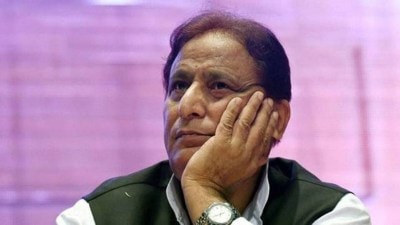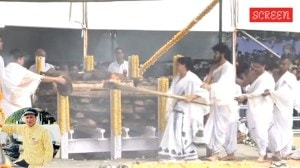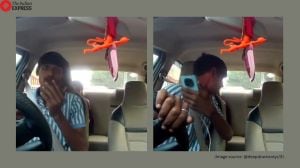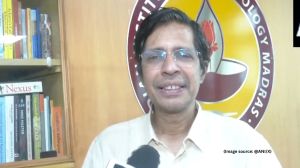EU mission scents signals of change in N.Korea
NOV 28: North Korea remains firmly committed to preserving its rigid Communist system, but economic crisis has forced Pyongyang to weigh p...

NOV 28: North Korea remains firmly committed to preserving its rigid Communist system, but economic crisis has forced Pyongyang to weigh possibly significant changes, European Union officials said on Tuesday.
"They start from the principle that their system is perfect, so that there’s nothing to change," EU delegation head Dominique Girard told a news conference after visiting North Korea.
"They do not see the necessity for any change except technical changes in the field of relations with foreign economic partners and with the South," said Girard, director of the French Foreign Ministry’s Asia-Oceania Department.
But Percy Westerlund, an official in charge of Korea relations at the European commission, said that after delivering stock praise of North Korea’s extreme brand of Communism, officials hinted they were open to some dramatic changes.
"Double speak is standard for them," said Westerlund, a Swedish diplomat with more than two years experience of dealing with Pyongyang.
"There are certain things which need to be said and will be said, but at the same time you have to listen for the nuances in what they say afterwards," he said.
Westerlund described as "extremely radical" statements by North Korean officials that Pyongyang was considering allowing foreign investors full control of projects. He said they also showed a strong interest in studying market economies.
Other North Korean signs of openness included a more positive tone than before in discussing rival South Korea, tacit acknowledgement of the success of China’s market-driven economic reforms and more candour on its economic and food crises.
Without using the word "reform", North Korea had allowed its farmers to cultivate personal plots and to sell surplus output at special markets, another EU official said.
Pyongyang was also keen to train people in foreign languages and technical skills.
The EU plans to send a technical mission to North Korea next year to explore cooperation in economic training, forestry, energy and public health.
Westerlund said, however, that further EU aid to ease North Korea’s chronic food shortages depended on Pyongyang’s "willingness to adapt the agricultural system".
With the concern of aid donors who responded to North Korea’s natural disasters and deadly food shortages of the last five years shifting to systemic failings, Pyongyang is being closely watched for signs it can reform its strict command economy.
Despite promising words from Pyongyang, "what really counts here are the deeds", Westerlund said.
The EU’s talks on aid, human rights and missile proliferation were limited by North Korea’s "desire not to go far in discussing some questions which go very much to the heart of the system," Girard said.
Pyongyang said it might be willing to engage in a dialogue on human rights with the EU, but was robust in defence of its system, criticised by human rights groups as one of the world’s most repressive, he said.
He said the North Koreans showed "no flexibility" on its missile development and export programme which has drawn Western concern, except to hint that they would be willing to discuss the issue further after they conclude talks with the United States.
The EU "troika" delegation was made up of France, thecurrent EU president, Sweden, the next EU president, and the EU Commission. Their North Korean counterparts were senior officials from Pyongyang’s Foreign Ministry.
The delegation was in North Korea from Saturday to Monday.
Photos



- 01
- 02
- 03
- 04
- 05




























